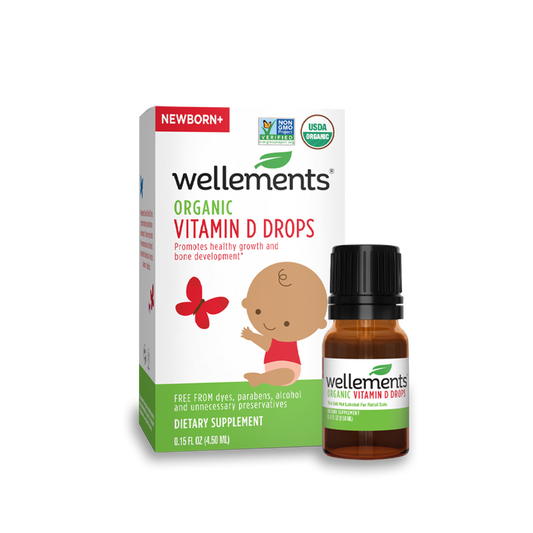Vitamin D & Breastfeeding: A Complete Guide
| updated:Share

There is nothing more substantial than a parent and child's bond. The relationship is defined by a parent's ability to nurture and protect their child. Part of that protection is ensuring your little one receives adequate nutritional support through diet. Unfortunately, many children are at risk of vitamin D deficiencies.
Do Infants Get Enough Vitamin D From Breast Milk?
Breast milk is not a good source of vitamin D. While breastfeeding is among the top ways to feed and support your child's nutritional needs, not enough of the essential vitamin transfers from the mother to the child.
Newborns and most infants will require a vitamin D supplement to support healthy development. Breastfed babies will need a vitamin D supplement of 400 IU within the first days of existence. Even babies consuming a diet of partial breastmilk and formula will need the supplement to ensure an adequate supply.

Why Are Infants at Risk for Vitamin D Deficiency?
The primary way most humans get vitamin D is through sun exposure. Unfortunately, direct sun exposure is not possible or recommended for babies younger than six months, putting them at greater risk of deficiency. Other potential factors that can limit the amount of vitamin D a person receives from sunlight include:
- Air pollution
- Cloud coverage
- High latitudes
- Clothing coverage
- Sunscreen
- Dark skin tones
The American Academy of Pediatrics and other institutions recommend keeping young babies out of direct sunlight, meaning their only source of vitamin D is food. Breast milk does not provide enough of the nutrient; therefore, a baby's diet needs supplementation.
4.1 /
5.0
(90)
90
total reviews
Vitamin D Drops
Sale price
$11.99
How Much Vitamin D Should a Nursing Mother Take?
Many women prefer not to give their children additional supplements directly; they prefer to take them themselves to filter them through their bodies. If you take a vitamin D supplement, so your breast milk has enough vitamin D for your child, you must realize you will need more than the 400 IUs recommended for babies.
If you wish to supplement your diet, so it is sufficient to support your vitamin D needs and your child's, you will need a vitamin D dose in the range of 5,000 to 6,000 IU/d. To receive an adequate daily dosage, you will likely need a supplement. You can speak to your doctor about appropriate supplements or prescriptions.

Vitamin D Supplements for Breastfeeding Mothers
There are many over-the-counter options for breastfeeding mothers. Most OTC options will top out at around 5,000 IUs. Still, you must consult your physician before starting any dietary supplements, especially when breastfeeding.
It is often best to directly supplement your child's feedings to ensure adequate supplementation. Every woman's body is different, and nutritional absorption can vary from mother to mother. By using a liquid supplement for your baby, such as Wellements Organic Vitamin D Drops, you ensure they get the nutritional support they need. You should consult your child's pediatrician before starting your little one on any supplement.
Specific Groups at Increased Risk of Vitamin D Deficiency
Babies are not the only human beings at risk of vitamin D deficiency. The problem is overwhelmingly common among several groups but is not often discussed. The people most at risk for vitamin D deficiency include:
- Infants and children under five
- Pregnant women
- Breastfeeding mothers
- Seniors over 65
- Those with limited sun exposure
- People with darker complexions
Vitamin D is essential to people of all ages but v to developing children. Without adequate vitamin D, a child is at risk of bone density issues and other problems. Talk to your child's pediatrician about dietary supplements.



